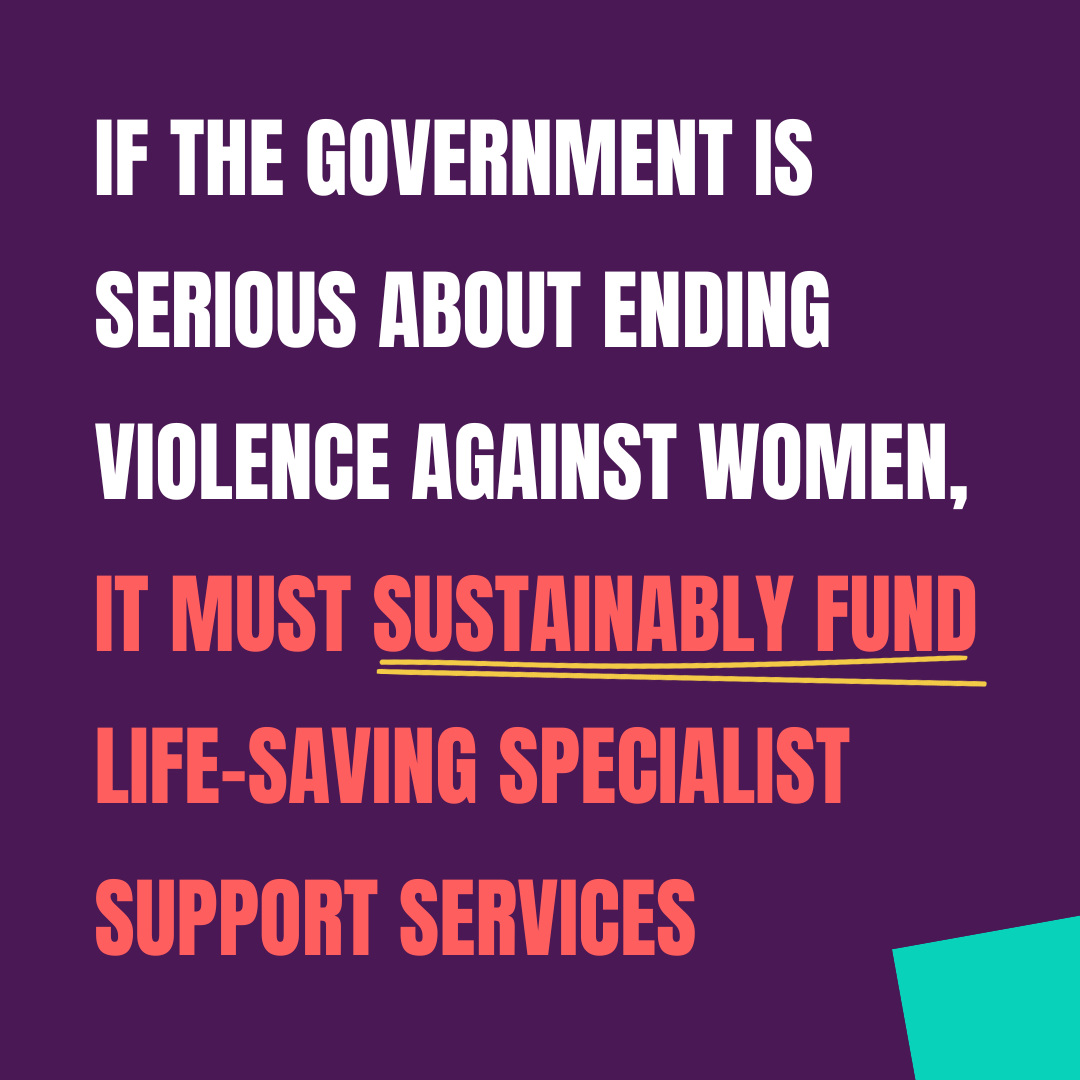 19 Mar
19 Mar
On Wednesday 30th October, Chancellor of the Exchequer Rachel Reeves delivered the first Budget since the Labour government was elected in July.
Just last week, in a joint letter to the editor, the End Violence Against Women Coalition (EVAW) and other expert organisations called for the government to demonstrate its commitment to halving violence against women and girls (VAWG) by addressing the chronic underfunding of specialist women’s services. A number of these life-saving services have warned of a funding cliff edge in March 2025. But with no specific VAWG spending announcements in this budget and little detail to date on departmental spending priorities, it remains unclear how the government intends to invest in delivering its halving VAWG mission.
Our joint VAWG manifesto called for reforms to tackle gender inequality, so we welcome some spending increases in health, education and local authorities over the next two years following chronic underfunding of public services. These spending increases are set to positively benefit women, who disproportionately rely on and work in these services, and make up the majority (58%) of those who receive the National Living Wage, which will now be raised.
However, the 1.7% increase in social security announced is less than the expected rate of inflation for the next year (2.2%), meaning a real-terms net cut. This will disproportionately impact women, who tend to rely more on social security.
Meanwhile, plans for more serious punishments for “low value” stolen goods could fall heavily on women in crisis. The Budget also did not contain any changes to key policies which affect women, such as the two-child limit, the benefit cap and sanctions.
No end to the cost-of-living crisis
The Women’s Budget Group says this budget brings “no end to the cost-of-living crisis” for families relying on the social security net and disabled people reliant on benefits to cover additional costs – a top concern of the public according to the Joseph Rowntree Foundation. But the government is set to reduce the ‘benefits bill’ and continue with widely-denounced policies around benefits sanctions.
The majority of much-needed education funding will go towards essential maintenance and rebuilding of schools, with a welcome £2.3bn increase in budgets to hire more teachers, as well as funding for ‘breakfast clubs’, higher education and SEN provision. Our previous report found that lack of funding was one of the biggest challenges for schools trying to properly implement relationships, sex and health education (RSHE), and we hope that this news will put schools in a better position to be able to make progress on this.
Government mission to halve VAWG
Delivering on the mission to halve VAWG requires coordinated action across government departments. The increase in departmental spending (1.7%) could mean greater dedicated resource towards this ambition, but as it stands, only the Law Officer’s department, Foreign Commonwealth and Development and the Home Office state they will direct resources towards the Safer Streets mission and tackling VAWG.
While we await details, the future of many VAWG services remains worryingly uncertain. The ‘whole-society approach’ set out in our VAWG manifesto will rely on targeted investment across government departments.
As stated in our joint letter to editor, while VAWG continues to harm and shorten women and girls’ lives on a weekly basis, the work needed to meet the government’s ambition of halving VAWG in a decade cannot start soon enough. This week’s Budget provides some short-term relief for many, but our questions remain unanswered about how and when we’ll start to change women and girls’ reality.
Andrea Simon, Director of the End Violence Against Women Coalition, said:
“This budget promises a much-needed injection of spending in public services such as the NHS, social care and schools. Violence against women and girls is now considered a national threat of epidemic proportions, with 2 million women the victims of male violence every year, and yet funding for essential life-saving support services and prevention work remains inadequate and insecure.
We urgently need clarity on the investment this government will make towards its own mission to halve the rate of violence against women and girls. This budget and spending review must lay the groundwork that sustains the services victims rely on and ensure future generations can be free from the threat of gendered violence.”
ENDS
Recommended ARTICLES
 19 Mar
19 Mar
 05 Mar
05 Mar
 27 Feb
27 Feb

